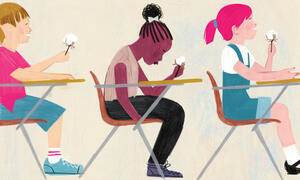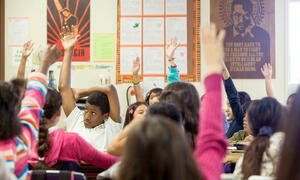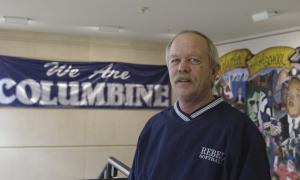4,319 Results
Leading Conversations After the Insurrection in Washington D.C.
In the coming days and weeks, we hope you'll offer students important context for the January 6 insurrection at the U.S. Capitol—and we'll keep sharing resources to help you do so. But we know you're likely already talking with students about what happened. We hope these resources help.
- Leading Conversations After Crisis
- Let's Talk!
- To Sustain the Tough Conversations, Active Listening Must Be the Norm
Accepting Change Because My Students Accepted First

Hate at School: This Viral Video Requires More Than a Conversation

Ending Curriculum Violence

Returning to Class after the Stoneman Douglas High School Shooting
We wish it weren't necessary to share these resources again. If you’re struggling with what to say to your students about the devastating attack on Marjory Stoneman Douglas High School, these resources can help. And if you or your students are taking action to prevent gun violence, we’d like to hear about it. Please contact our Editors.
- When Bad Things Happen
- Showing Up Strong for Yourself—and Your Students—in the Aftermath of Violence
- Responding to Trauma in Your Classroom
Education Justice Is Crucial for a Thriving Democracy
During this back-to-school season, let’s support the education and well-being of all young people. Learning for Justice offers new and updated education justice resources with research-based practices that benefit all students and help ensure more inclusive public schools that foster excellence and equity. Education justice is crucial if we are to achieve a thriving multiracial democracy.
Visit the Education Justice series for resources!
- Education Justice
- Why Public Schools Matter
- Understanding the Role and Responsibilities of the Department of Education
Today Is National Voter Registration Day!
The 2020 election is six weeks away, and time is winding down for future voters to get registered! Whether you’re working remotely or in-person, these resources can help you teach students of any age about voting and civic engagement. Here, you’ll find easy advice on helping students register, along with recommendations and resources for teaching about voting rights and voter suppression.
- Take 10 Minutes to Register Future Voters Today
- Future Voters Project
- Voting and Voices
What’s New With Teaching Tolerance’s Educator Grants?

